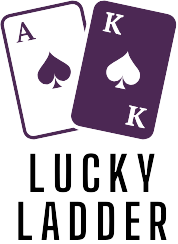Roulette can feel like a thrilling rollercoaster ride, but without proper bankroll management, it’s more like a ride on a rickety old cart that might just fall apart at any moment. Knowing how to manage your bankroll is the secret sauce to turning that spinning wheel into a money-making machine instead of a money-eating monster.
Table of Contents
ToggleUnderstanding Roulette Bankroll Management
Effective bankroll management in roulette plays a vital role in creating a positive gaming experience. Players appreciate the significance of managing their funds wisely to enhance enjoyment while minimizing losses.
Importance of Proper Bankroll Management
Proper bankroll management ensures players maintain control of their gambling experience. It helps in preventing significant losses and allows for an enjoyable time at the table. Allocating a specific amount for play minimizes the risk of depleting funds quickly. Adhering to a budget can lead to more strategic betting decisions, enhancing the chance of profit. This discipline transforms roulette into a source of entertainment rather than a financial burden.
Key Concepts to Know
Understanding key concepts of bankroll management is essential for success. First, players should establish a budget before beginning play. This budget serves as the financial boundary for the session. Second, set limits on individual bets to avoid high-risk losses. Third, identify loss limits to determine when to stop playing. Fourth, employ strategies like betting units to manage funds effectively. Lastly, recognize the importance of maintaining a clear head, as emotions can impact decision-making. These concepts create a foundation for fostering a responsible gambling approach.
Setting Your Bankroll

Effective bankroll management starts with defining your budget and understanding your limits. Players must assess their financial situation and set an appropriate bankroll for roulette play.
Determining Your Budget
Establishing a budget requires considering personal finances and determining how much money can be allocated for gambling. Players should designate a specific amount, ensuring it’s an amount they can afford to lose. Allocating 1% to 5% of this total bankroll for each session can help extend gameplay. Regularly reviewing this budget allows players to adjust their spending as necessary, maintaining control over their finances and gaming experience.
Choosing the Right Bet Size
Selecting the right bet size significantly impacts the duration and enjoyment of play. Players often utilize a formula that involves dividing their total bankroll by the number of betting rounds they plan to participate in. This method helps in determining a comfortable bet size without risking the entire bankroll. Sticking to smaller bets reinforces a longer playtime and reduces the chances of substantial losses. Consistent bet sizes can create a more predictable and enjoyable gaming experience.
Strategies for Managing Your Bankroll
Managing a bankroll effectively leads to a more enjoyable roulette experience. Various strategies exist to help players maximize their funds while minimizing losses.
Progressive Betting Strategies
Progressive betting strategies involve increasing bets after wins or losses. This method, such as the Martingale system, requires doubling the bet after each loss, aiming to recover previous losses once a win occurs. Players must remain cautious, as chasing losses can deplete their bankroll quickly. Additionally, variations like the Fibonacci sequence offer another option that adjusts bets based on a sequence of numbers. This approach may reduce risk but requires careful tracking to ensure success. Players need to test these strategies in a budget-friendly manner before applying them at higher stakes.
Flat Betting Approach
Flat betting encourages consistent wagers across sessions, promoting disciplined gameplay. By betting the same amount each round, players can control their bankroll over time. This strategy eliminates the pressure of adjusting bets based on outcomes. It suits those who prefer a methodical approach, allowing ample time for decision-making without emotional influences. Typically, players allocate a fixed percentage of their bankroll per session, such as 2% or 3%. Sticking to predetermined amounts strengthens self-control, aligning with responsible gambling principles. Over time, flat betting can provide a steady gaming experience without the dramatic fluctuations often seen in more aggressive strategies.
Tips for Successful Bankroll Management
Successful bankroll management revolves around strategic decision-making. Players must focus on specific methods to enhance their gaming experience while staying within their financial boundaries.
Setting Win and Loss Limits
Setting win and loss limits is crucial for any roulette player. Establish a win limit that determines when to stop playing after achieving a certain profit. For instance, stopping after winning 30% of the initial bankroll prevents players from losing their earnings back to the house. Additionally, impose a loss limit to protect against significant financial downturns. If losses reach 20% of the bankroll, it’s wise to step away instead of chasing losses. By adhering to these limits, players cultivate responsible gambling habits.
Adjusting Your Strategy Based on Performance
Adjusting strategy based on performance enhances bankroll management. Players should analyze their betting success regularly. If a specific strategy leads to consistent wins, it may warrant further investment. On the contrary, if results consistently fall short, reassessing the approach becomes vital. Modifying bet sizes or choosing different betting strategies can help maintain a sustainable bankroll. For example, switching from progressive betting to flat betting might mitigate risk. Adapting strategies based on performance ensures ongoing engagement and keeps the bankroll intact.
Common Mistakes to Avoid
Bankroll management can be easily undermined by common errors. Recognizing these pitfalls leads to a more enjoyable roulette experience.
Ignoring Game Variance
Failing to understand game variance leads to significant bankroll strain. Every roulette variant, whether European or American, has different house edges and outcomes. Players often underestimate how variance affects their betting patterns. Slotting into a single strategy without considering these fluctuations can result in unexpected losses. It helps to remember that variance is inherent to gambling. Adjusting one’s approach based on game type ensures better alignment with potential outcomes.
Chasing Losses
Chasing losses creates an environment where players overspend and increase financial risk. When losses occur, the urge to recover funds quickly can lead to impulsive decisions. It’s crucial to set loss limits and stick to them. Trying to regain lost money often results in deeper losses. Recognizing when to step back allows for a clearer mindset. Establishing a plan for losses brings structure to gameplay and promotes critical thinking over emotional reactions.
Conclusion
Effective bankroll management is the cornerstone of a successful roulette experience. By implementing strategic budgeting and disciplined betting practices, players can enjoy the thrill of the game without the risk of financial strain. Setting clear limits on wins and losses fosters a more responsible approach to gambling, ensuring that the excitement remains intact.
Players should remain adaptable and regularly assess their strategies to maintain a healthy bankroll. By avoiding common pitfalls like chasing losses and ignoring game variance, they can protect their finances while maximizing enjoyment. Ultimately, a well-managed bankroll transforms roulette from a potential financial burden into an entertaining and rewarding pursuit.




